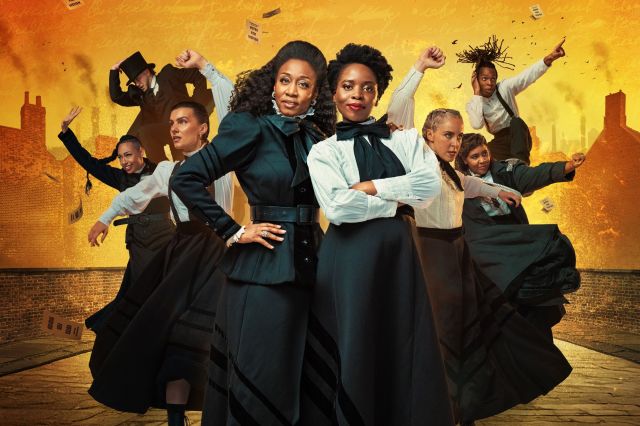Globe to Globe: We were in Cameroon with none of our costumes and none of our set
Globe to Globe executive producer Tom Bird explains what happened when his ”Hamlet” troupe’s kit got lost in transit
"This is the place," said the local governor, in under-his-breath French. The place was a dusty patch of ground, ten feet by four, between the road and a butcher's stall. I stared and frowned. Flies buzzed.
We had driven for a full day west across Cameroon, on a good road through overhanging jungle, to try to play our production of Hamlet to displaced people from the Central African Republic. That country is in the midst of a civil war, too risky to visit, so we hoped to play to an audience of people from that country, at least. The United Nations run a number of programmes in eastern Cameroon with refugees from the CAR, and they advised us that a large village called Mandjou would be the place to perform if we wished to attract Central Africans to watch our show.
So we went to Mandjou. They were meant to be expecting us, but when we arrived I was taken to see the governor of the village, who knew nothing about the proposed performance. Thanks to a letter from central government in Yaoundé, the distant capital, we were granted permission to perform on that day, immediately. But how on earth were we going to find a place to play? How on earth were we going to find an audience? Would anyone even be vaguely interested?
The difference between Mandjou and Bertoua, the large Cameroonian town a few miles west, is palpable. Bertoua is a confident Cameroonian regional hub, where people own Barcelona football shirts and mobile phones, even if goats still compete for road space with the ubiquitous Toyota Land Cruisers. Mandjou is somewhere else: lots of men and women wear traditional dress, and where there is a football shirt to be seen, it is the green and yellow national shirt of the Central African Republic.
The governor agreed to drive us around and to point out two places in which we'd be able to do the show: one was the butcher's stall, the next was outside a mechanic's shop on the town's main roundabout. Neither would work. On the other side of the roundabout, however, was a makeshift café with a corrugated-iron awning over a broad dusty terrace. Our production manager got excited about this, and after a brief negotiation with the café's delighted but rather surprised owner, we had a venue. Then one of the actors squeezed an accordion, and we had an audience of hundreds.
It's important to mention at this stage that we had none of our costumes and next to none of our set: Kenya Airways had lost this in transit to Cameroon. This is an occupational hazard of trying to tour to every country in the world — the company had already travelled around the South Pacific using sticks for fencing foils and t-shirts for doublets. This time, the poles propping up the café's awning became the pillars of the Globe, and the foils were bits of wood wrapped in kitchen foil. The Hamlet company have become perhaps the world's most resourceful troupe of performers – a host of random objects can instantaneously be transformed into skulls, doublets, books, chain mail or pikes.
Our lack of effects didn't seem to bother the warm Mandjou audience, who whooped and jeered and giggled through the first half of the show. Stage right, the local traffic policeman had installed himself on the stage, at a desk. He said it was important he was there, as he was the local traffic policeman. From the stage left side, towards the end of the first half, came striding another policeman, who said the show must stop immediately due to our lack of permission from the sub-prefect (which we actually had). Mopeds spluttered round the roundabout. The actors withdrew to the interior of the café and agreed a point at which to restart. Once satisfied, the local chief of police allocated us a policewoman whose job it now was to support the performance. She wandered across the stage at random intervals to ensure everything was in order.
Following the fencing and the jig at the end of the show, the audience flooded onto the stage to talk to us. Jennifer Leong, an actress from Hong Kong who plays Ophelia, was greeted with a "ni hao!" by schoolchildren: a reminder that, no matter how rural you get in Africa, the Chinese are there too. Other actors were jumped on, songs were exchanged, selfies were snapped.
Perhaps the biggest joy of the Hamlet tour is that you get to leave behind the "normal" international touring circuit, to play in places to which no-one tours, to entertain people who seem completely overjoyed and surprised, in equal measure, to be able to watch a play.
Hamlet Globe to Globe is currently touring around the world












